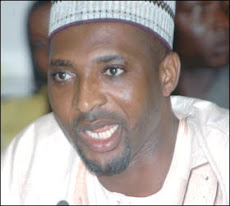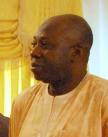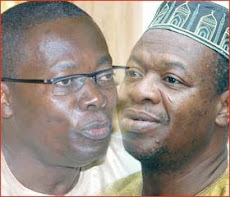
The case involving a $2.5billion loan package for Ghana during Jerry Rawlings’ administration, took a new twist yesterday when an Accra-based renowned lawyer, William Adumoah-Bossman, told an Accra Commercial Court that he has in his possession an advisory letter from one Thomas Moss, an agent for the loan from the Hong Kong Trust, which indicated that the money was transferred to Ghana.
According to him, he had information that the controversial loan money was taken to the Castle, the seat of government, in boxes. The legal luminary disclosed that what made his client and the American company believe that the money was transferred, was the irrevocable mandate signed by the BoG in the name of the American company and also the commission paid to the agent.
The senior lawyer, who indicated that he believed there was some form of “collusion” at the bank, made some baffling revelations when he informed the court that some employees of BoG had visited him in his office during the period the money was supposed to come, usually around 7:30pm, and informed him that they took part in the packing of monies into vans and sending them to certain destinations within the country, although they did not specifically state that those monies were part of the loan.
According to him, the workers who looked “scared, frightened and careful so that nobody would see them coming to me had also mentioned that they parked some of the money into boxes and sent them to the Castle”. His informants, he noted, were surprised that the bank said it had no information about the money. “My Lord, I received the information shortly before the meeting with the BoG and more information was added after the meeting. Following this, I was surprised that there was no document from the bank that the money has arrived,” he added.
Thomas Moss, who transacted the business on behalf of the Hong Kong Trust which allegedly brought the money from the government, said in the advisory letter that he had taken his 2.5 percent commission of the whole package and therefore had sent the letter to Egbert Adejeso and Associates, a defendant in the case, to confirm that the money had arrived in Ghana. Mr. Adumoah-Bossman, the first to testify among four officials subpoenaed by the court presided over the Justice Margaret Insaidoo, to assist in tracing the whereabouts of the said $2.5 billion loan introduced to the Rawlings government by Van Kirksey and Associates, an American company in the late 80s, had at the last adjourned date testified that he was not certain on the arrival of the money because there was no document to prove it.
However, the one-time counsel for Egbert Adjeso and Associates made a u-turn under cross-examination by Richard Twumasi Ankrah, counsel for the American company, to admit that if the advisory letter was anything to go by, then there was no doubt that the money arrived in the country.
The court, based on this disclosure, ordered Mr. Adumoah-Bossman to present the letter in his custody today to assist the court to arrive at the truth. Van Kirksey and Associates had dragged Egbert Adjeso and Associates, P.V. Obeng and Bank of Ghana to court to demand its 10 percent share of the total package as stated in an agreement it made with the government. On the other hand, the defendants maintained that no such amount was transferred into the country.
It was at the request of Owusu Afriyie, counsel for Egbert Adjeso, that Mr Adumoah-Bossman, S.K. Appiah, then acting Governor of Bank of Ghana (BoG), S.N Adjei, then BoG counsel, and Dr. K.G Erbyn, then Chief Executive of Ghana Investment Centre, were subpoenaed to court for their account of the deal. According to Mr. Adumoah-Bossman, he was surprised when at a meeting with BoG on the issue, Dr. Kwabena Duffour, then Governor, told him that after a diligent search by the bank, no such amount had been found.
When asked by Mr. Twumasi whether P.V Obeng then PNDC member and Chairman of the Committee of Secretaries, knew about the loan, Mr. Adumoah-Bossman stated that he had on several occasions discussed the issue on phone with him and that P.V Obeng had also asked Egbert Adjeso to meet him in his house one evening to discuss the money. These discussions between him and Mr Obeng, he admitted, were after they had information that the money had arrived. According to Mr. Adumoah-Bossman, he got to know from Mr. Adjeso that the first batch of the money expected to arrive was $75million into the Standard Chartered Bank account of Van Kirksey and Associates, but failed to do so without any reason.
Mr. Adumoah-Bossman also admitted that he was the lawyer for both Egbert Adjeso Company and Van Kirksey and Associates at the time the two were in a joint venture business. According to him, he later abrogated the agreement after a gentleman’s deal between the two, with Adjeso Company still maintaining him as the company’s lawyer while Van Kirksey employed one Joe Reindoff as its counsel. Mr. Adumoah-Bossman, after going through exhibits in court, admitted that Egbert Adjeso had written to the then Speaker of Parliament, Justice D.F Annan, and Director of Immigration, stating that he was the one who brought the loan and this led to the seizure of Mr. Van Kirksey’s passport.
| Source:Daily Guide |













No comments:
Post a Comment